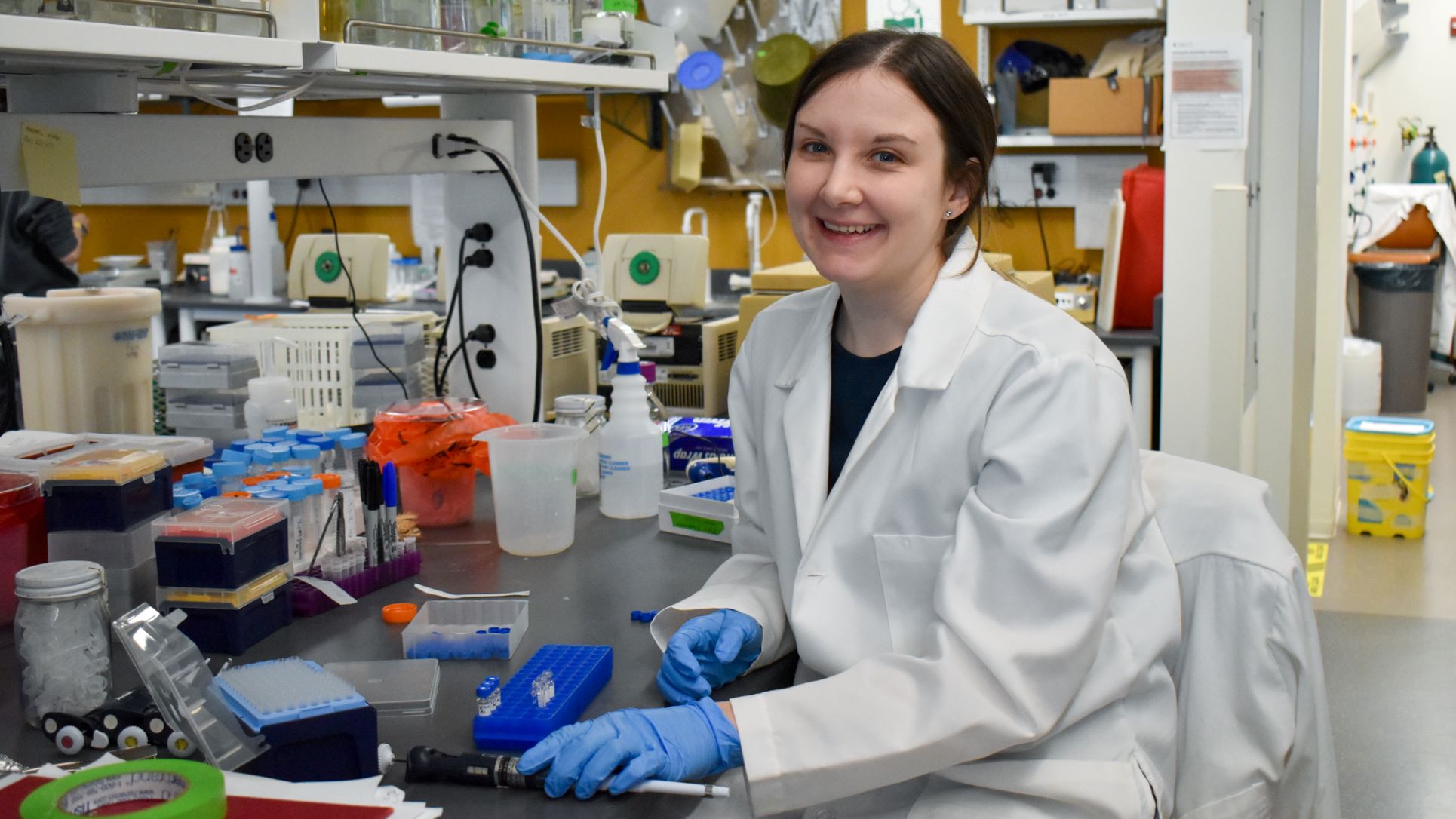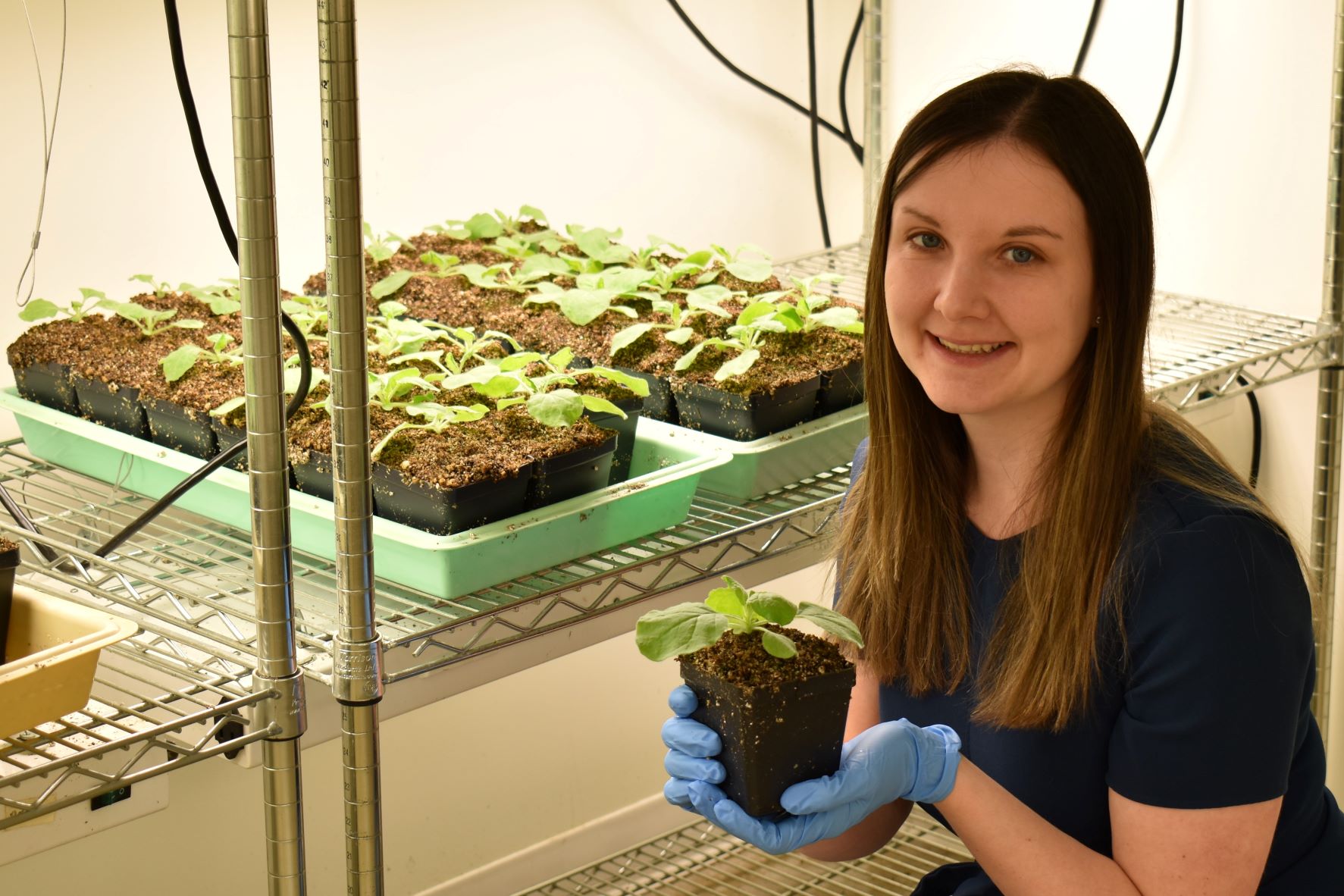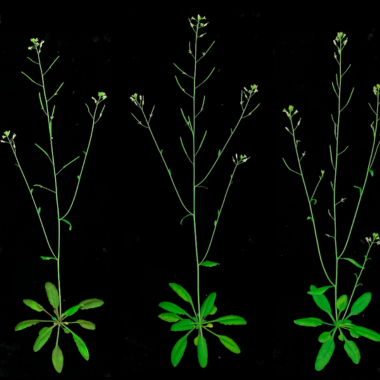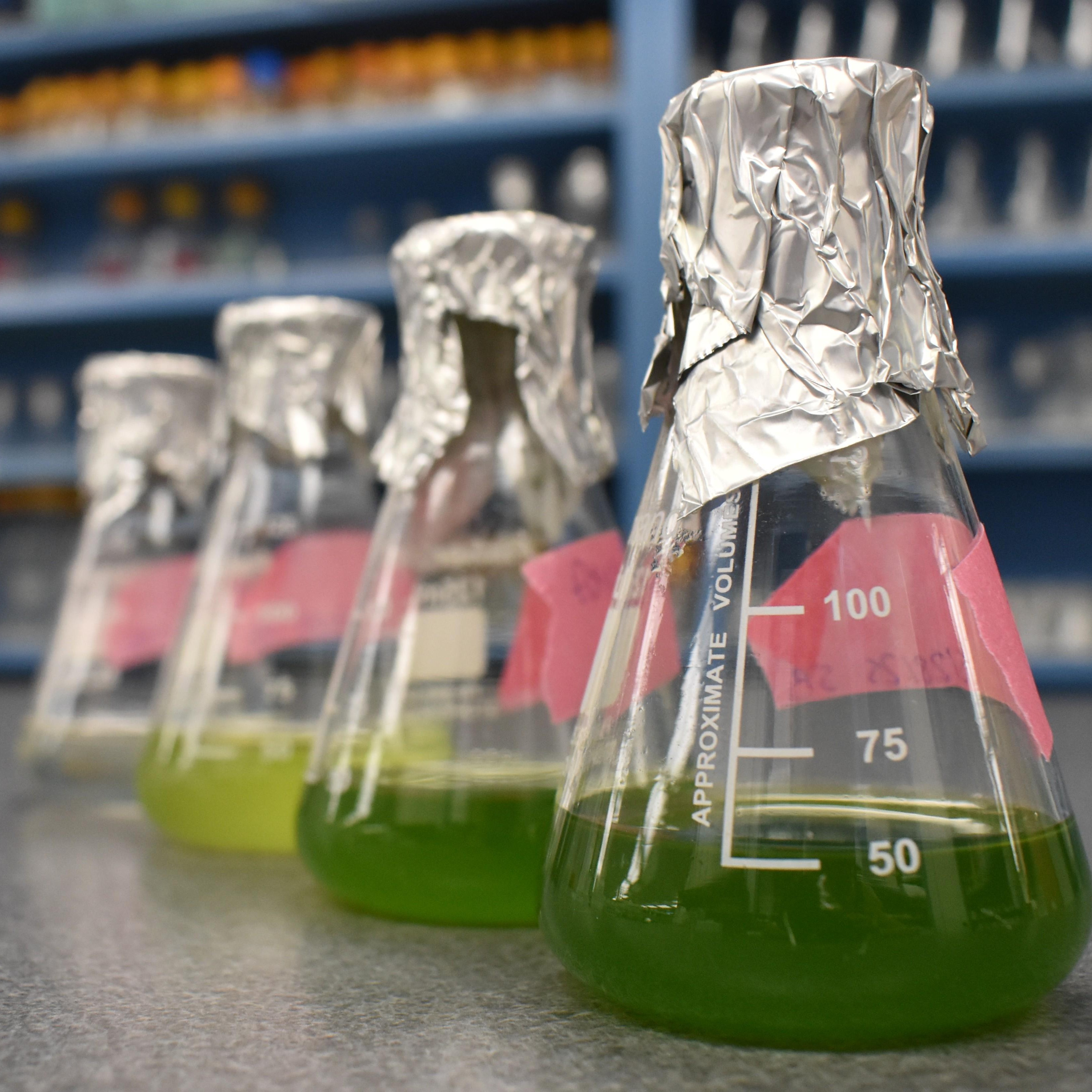From farm to pharmaceuticals: Discovering metabolites with potential uses in medicine
Deadly Nightshade is famous for its toxicity, but the use of the metabolites they produce in essential medicines is perhaps less well known.

By Kara Headley, MPS 2023
Hannah Parks is a fifth year Ph.D. graduate student in the Department of Biochemistry & Molecular Biology and the Molecular Plant Sciences (MPS) graduate program who studies the metabolism in solanaceous species, which includes tomato plants and Atropa belladonna, Deadly Nightshade.
She is a member of Cornelius Barry’s lab. This lab is interested in exploring the diversity of plant metabolites – and understanding how the pathways responsible for producing these metabolites evolve.
Scopolamine and hyoscyamine are medicinally important compounds that are produced in some solanaceous species. The researchers are interested in understanding the metabolism in this family of plants. Scopolamine is of particular interest because it is an essential medicine used to treat motion sickness.
Parks’s work on this topic was recently published in New Phytologist.
“There’s a lot of interest in engineering this pathway in microbial systems,” Parks said. “Because these metabolites are medicinally important, understanding what diversity in the metabolites exists can help us discover enzymes that are involved in modifying these metabolites, could be used as leads to new drugs.”
The researchers interrupt the normal metabolism of plants by silencing specific pathway genes.
“The metabolism of Deadly Nightshade has been studied for decades because it’s a source of pharmaceutically important compounds,” said Barry, Associate Professor in the Department of Horticulture. “Yet Hannah was able to identify dozens of novel metabolites in the roots of these plants that were previously overlooked and show how some of these metabolites are formed.”
This is Parks’s first publication as the first author, meaning she led the work to get this research published.

By Kara Headley, MPS 2023
“It’s always special when an early-career researcher publishes their first first-author paper because it typically represents several years of research effort that they have led,” Barry said. “It’s a big milestone in a scientist’s career and will help Hannah as she starts to think about graduation and transitioning to the next stage of her career.”
When she finishes her Ph.D., Parks is planning to look for a postdoctoral research position, continuing her career in academia.
“I am excited about the potential uses of specialized metabolism and metabolic genes, as well as the complicated chemistry that plants do,” said Parks, speaking on her research interests. “I am interested in the evolution of traits like these, and the potential uses they could have for humans.”
As a member of the MPS program, she has taken a number of classes designed to train future researchers.
“What’s good about some of the course work is that they are teaching us applicable skills,” Parks said. “Many of the classes gave us real data to analyze, which allowed us to do tasks such as writing python code or interpreting metabolite structural data.”
Parks served at the president of the Association of Molecular Plant Science Students (AMPSS) from 2021 to 2022, and social chair from 2020-2021. She has been an active member of the group during her time as a student.
By Kara Headley
Banner image: Researcher pipettes solvent to make sample dilutions for metabolite analysis using LC-MS (liquid chromatography coupled with mass spectrometry); Banner image by Kara Headley, MPS 2023



